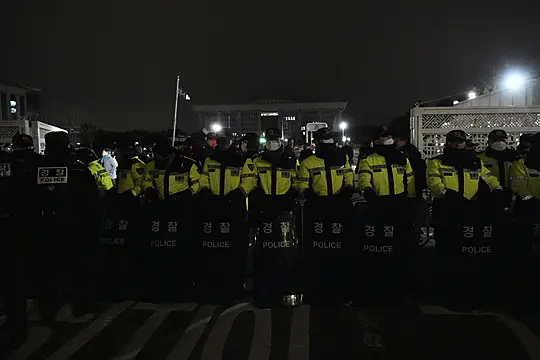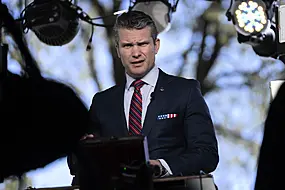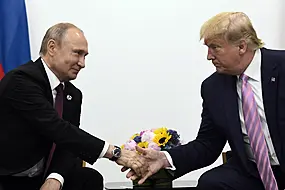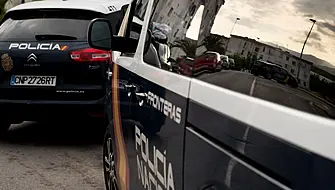South Korean President Yoon Suk Yeol has said he will soon lift the martial law he imposed during a tense night of political drama in which troops surrounded parliament and legislators voted to reject military rule.
Mr Yoon said his government had withdrawn the military personnel that had been deployed, and that he would formally lift martial law following a cabinet meeting as “soon as members arrive”.
Mr Yoon had declared martial law late on Tuesday, vowing to eliminate “anti-state” forces as he struggles against an opposition that controls the country’s parliament and that he accuses of sympathising with communist North Korea.
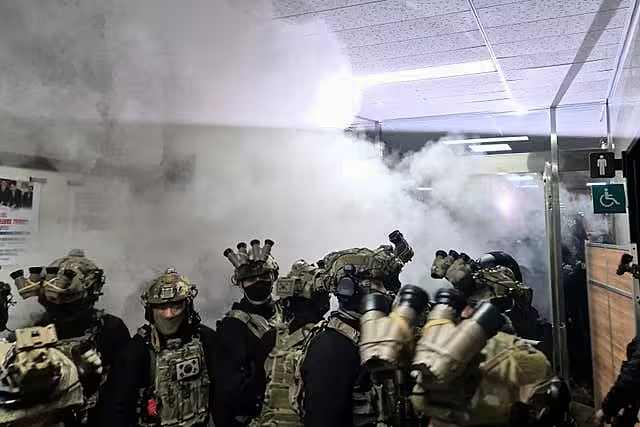
Less than three hours later, parliament voted to lift the declaration, with National Assembly speaker Woo Won Shik declaring that the martial law was “invalid” and that legislators “will protect democracy with the people”.
The president’s surprising move harked back to an era of authoritarian leaders that the country has not seen since the 1980s, and it was immediately denounced by the opposition and the leader of Mr Yoon’s own party.
Police and military personnel were seen leaving the Assembly’s grounds after Mr Woo called for their withdrawal.
Lee Jae-myung, leader of the liberal Democratic Party, which holds the majority in the 300-seat parliament, said the party’s legislators will remain in the Assembly’s main hall until Mr Yoon formally lifts his order.
“Democratic Party lawmakers, including me and many others, will protect our country’s democracy and future and public safety, lives and properties, with our own lives,” Mr Lee told reporters.
Jo Seung-lae, a Democratic legislator, claimed that security camera footage following Mr Yoon’s declaration showed that troops moved in a way that suggested they were trying to arrest Mr Lee, Mr Woo and even Han Dong-hoon, the leader of Mr Yoon’s People Power Party.
Officials from Mr Yoon’s office and the Defence Ministry did not respond to requests for comment early on Wednesday.
Seemingly hundreds of protesters gathered in front of the Assembly, waving banners and calling for Mr Yoon’s impeachment.

Some protesters scuffled with troops ahead of the legislators’ vote, but there were no immediate reports of injuries or major property damage.
At least one window was broken as troops attempted to enter the Assembly building.
One woman tried unsuccessfully to pull a rifle away from one of the soldiers, while shouting “Aren’t you embarrassed?”
Under South Korea’s constitution, the president can declare martial law during “wartime, war-like situations or other comparable national emergency states” that require the use of military force to maintain peace and order.
It was questionable whether South Korea is currently in such a state.
When martial law is declared, “special measures” can be employed to restrict the freedom of press, freedom of assembly and other rights, as well as the power of courts.
The constitution also states that the president must oblige when the National Assembly demands the lifting of martial law with a majority vote.
Following Mr Yoon’s announcement, South Korea’s military proclaimed that parliament and other political gatherings that could cause “social confusion” would be suspended, South Korea’s Yonhap news agency said.

In Washington, the White House said the US was “seriously concerned” by the events in Seoul.
A spokesperson for the National Security Council said President Joe Biden’s administration was not notified in advance of the martial law announcement and was in contact with the South Korean government.
Speaking at an event with Japan’s ambassador to Washington, US deputy secretary of state Kurt Campbell, a longtime Asia diplomat, reiterated that the US-South Korea alliance is “ironclad” and the US would “stand by Korea in their time of uncertainty”.
“I also want to just underscore that we have every hope and expectation that any political disputes will be resolved peacefully and in accordance with the rule of law,” Mr Campbell said.
The South Korean military also said that the country’s striking doctors should return to work within 48 hours, Yonhap said.
Thousands of doctors have been striking for months over government plans to expand the number of students at medical schools.
The military said anyone who violates the decree could be arrested without a warrant.

Soon after the declaration, the parliament speaker called on his YouTube channel for all legislators to gather at the National Assembly.
He urged military and law enforcement personnel to “remain calm and hold their positions”.
All 190 legislators who participated in the vote supported the lifting of martial law.
Television footage showed soldiers who had been stationed at parliament leaving the site after the vote.
Hours earlier, TV showed police officers blocking the entrance of the National Assembly and helmeted soldiers carrying rifles in front of the building.
An Associated Press photographer saw at least three helicopters, likely to be from the military, that landed inside the Assembly grounds, while two or three helicopters circled above the site.
The leader of Mr Yoon’s conservative People Power Party, Han Dong-hoon, called the decision to impose martial law “wrong” and vowed to “stop it with the people”.
Mr Lee, who narrowly lost to Mr Yoon in the 2022 presidential election, called Mr Yoon’s announcement “illegal and unconstitutional”.

Mr Yoon said during a televised speech that martial law would help “rebuild and protect” the country from “falling into the depths of national ruin”.
He said he would “eradicate pro-North Korean forces and protect the constitutional democratic order”.
“I will eliminate anti-state forces as quickly as possible and normalise the country,” he said, while asking the people to believe in him and tolerate “some inconveniences”.
Mr Yoon – whose approval rating has dipped in recent months – has struggled to push his agenda against an opposition-controlled parliament since taking office in 2022.
Mr Yoon’s party has been locked in an impasse with the liberal opposition over next year’s budget Bill.
The opposition has also attempted to pass motions to impeach three top prosecutors, including the chief of the Seoul Central District Prosecutors’ Office, in what the conservatives have called a vendetta against their criminal investigations of Mr Lee, who has been seen as the favourite for the next presidential election in 2027 in opinion polls.
During his televised announcement, Mr Yoon also described the opposition as “shameless pro-North Korean anti-state forces who are plundering the freedom and happiness of our citizens”, but he did not elaborate.
Mr Yoon has taken a hard line on North Korea over its nuclear ambitions, departing from the policies of his liberal predecessor, Moon Jae-in, who pursued inter-Korean engagement.

Mr Yoon has also dismissed calls for independent investigations into scandals involving his wife and top officials, drawing quick, strong rebukes from his political rivals.
Mr Yoon’s move was the first declaration of martial law since the country’s democratisation in 1987.
The country’s last previous martial law was in October 1979, following the assassination of former military dictator Park Chung-hee.
Natalia Slavney, research analyst at Stimson Centre’s 38 North website that focuses on Korean affairs, said Mr Yoon’s imposition of martial law was “a serious backslide of democracy in South Korea” that followed a “worrying trend of abuse” since he took office in 2022.
“It remains to be seen what the political fallout of this brief emergency martial law will be – both domestically and internationally. But South Korea has a robust history of political pluralism and is no stranger to mass protests and swift impeachments,” Ms Slavney said, citing the example of former president Park Geun-hye.
Ms Park, the country’s first female president, was ousted from office and imprisoned for bribery and other crimes in 2017.
